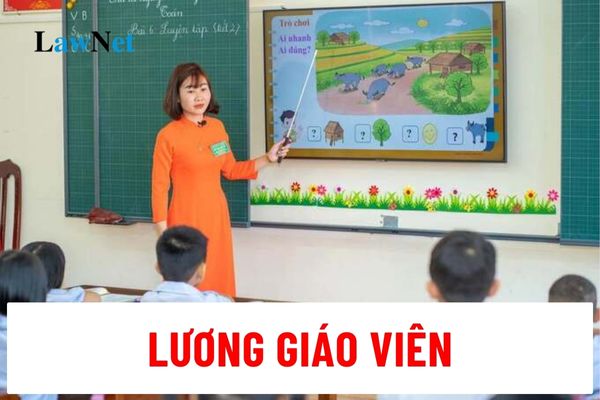Is it true that teacher salaries in Vietnam will be prioritized to be the highest in the public service system in the near future?
Is it true that teacher salaries in Vietnam will be prioritized to be the highest in the public service system in the near future?
In Section 6 of Conclusion 91-KL/TW 2024, the Politburo mandates the following task:
6. Develop, enhance the quality, and standardize the team of teachers and educational management personnel at all levels; ensure sufficient quantities of teachers as per prescribed standards; research mechanisms and policies for mobility and rotation of teachers between localities to fundamentally solve the localized surplus and shortage of teachers, and improve the quality of education in disadvantaged areas. Innovate state management of teachers comprehensively, linked with management of professional qualifications and quality. Strongly innovate mechanisms and policies for identifying, recruiting, utilizing, training, rewarding, and valuing talents working in the Education sector; implement the policy that teachers' salaries are prioritized to be the highest in the administrative and career payroll system, with additional allowances based on job characteristics and regions. Promote democracy, respect creative freedom, academic expertise, and highlight the ethics and responsibilities of teachers.
The Politburo requires the implementation of educational innovations, including that teachers’ salaries be prioritized to be the highest in the administrative and career payroll system.
Additionally, the Politburo also requires that teachers' salaries include additional allowances based on job characteristics and regions.

Is it true that teacher salaries in Vietnam will be prioritized to be the highest in the public service system in the near future? (Image from the Internet)
Which direction will the Law on Teachers and the Law on Lifelong Learning in Vietnam be developed?
In Section 2 of Conclusion 91-KL/TW 2024, the Politburo mandates the following task:
2. Focus on reviewing, amending, supplementing, and completing mechanisms, policies, and laws on education and training, to remove bottlenecks, including promptly developing the Law on Teachers, the Law on Lifelong Learning, the Education Development Strategy, and regulations on innovating education and training management, and school governance towards scientific, modern, integrated, and interlinked approaches, suitable with international integration and domestic realities. Enhance the efficiency of state management in education and training; intensify decentralization and delegation; increase the roles of state management agencies in education, training in deciding staffing, organizational structure, policies for teachers, and state budget allocation for the Education sector. Increase autonomy, enhance accountability, and promote democracy in educational and training institutions; complete policies, and mechanisms for autonomy in higher education institutions, suitable with global trends. Implement the policy of the Party Secretary concurrently holding the position of Chairman of the Council of schools, public universities; at the same time, clarify the functions, tasks, and relationships between the Council President and the Principal to have regulations suitable with the realities, considering the specificities of schools in the Police and Military. Conduct a comprehensive evaluation of the implementation of the policy on reorganizing, merging continuing education centers, vocational education - continuing education centers nationwide to have suitable solutions, facilitating the management and development of this system in the future. Strengthen and improve the quality of inspection, supervision of the institutionalization of the Party’s policies, the implementation of policies, and laws in the field of education and training.
The Politburo clearly requires the prompt development of the Law on Teachers, and the Law on Lifelong Learning, along with the establishment of the Education Development Strategy and regulations on innovating education and training management, and school governance.
And these laws need to be developed toward scientific, modern, integrated, and interlinked approaches, suitable with international integration and domestic realities.
What is the current statutory pay rate for teachers in Vietnam?
Based on Article 3 of Decree 73/2024/ND-CP on the statutory pay rate applicable to teachers:
Statutory pay rate
- The statutory pay rate is used as a basis:
a) To calculate salaries in salary scales, allowances, and implement other policies as prescribed by law for the subjects specified in Article 2 of this Decree;
b) To calculate operational expenses and living expenses as prescribed by law;
c) To calculate contributions and policies enjoyed according to the statutory pay rate.
- From July 1, 2024, the statutory pay rate is 2,340,000 VND/month.
** The current statutory pay rate for public employee teachers is 2,340,000 VND/month.**

